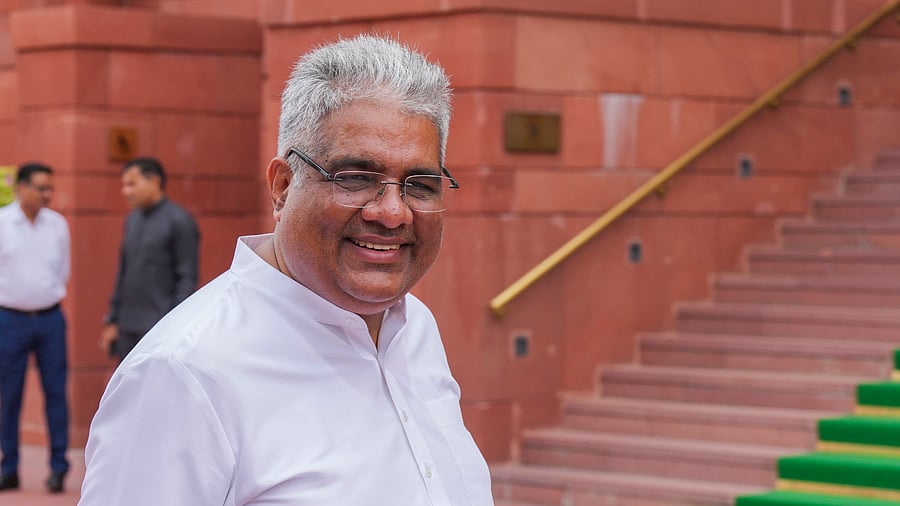
Union Minister Bhupendra Yadav
Credit: PTI Photo
New Delhi: With the developed nations putting pressure on India to reduce fossil fuel consumption due to climate change concerns, Union Environment Minister Bhupendra Yadav on Saturday slammed the rich nations by saying that they in the past didn’t eat less and redistribute the food when one-third of India and world were hungry.
“A lesson from the 1970s is important to mention. It was a time one-third of India and almost 35 per cent of the developing world was in the grip of hunger. The developed world did not eat less to redistribute food to those hungry,” Yadav said here on Saturday at a conference organised by the National Green Tribunal.
“The climate anxiety which has gripped the world cannot force India to give up its right to ensure food, water, energy, and quality to its 140 crore people.”
The minister’s comment comes amid global pressure on New Delhi to cut down on its fossil fuel emission citing climate change concerns, though India’s economic growth is directly related to energy produced from coal and other fossil fuels.
The country relies heavily on coal for energy generation. In FY 2023-24, coal contributed to about 79 per cent of the total primary energy generation, followed by electricity from hydro, nuclear, and other renewable sources (7 per cent) and natural gas (7 per cent), according to the Energy Statistics India 2025 report.
India’s per capita electricity consumption is almost 10 times less than that of the USA, even though compared to 2014-15, the situation has improved.
Yadav said, under the Paris agreement, India fulfilled its commitments on green energy nine years ahead of the 2030 target and as one of the world’s largest and fastest-growing economies, the nation maintained a focus on reducing its carbon footprint.
Inaugurating the conference, President Droupadi Murmu said it was people's moral responsibility to provide the legacy of a clean environment to the coming generations.
"Elders in every family worry about which school or college their children will study in and what career they will choose. While such a worry is justified, we also have to think about what kind of air our children will breathe, what kind of water they will get to drink; whether they will get to hear the sounds of birds, and be able to experience the beauty of lush green forests," Murmu said.
"For this, we will have to adopt a lifestyle that is conscious of and sensitive towards the environment so that it is not only protected but also enhanced and made more vibrant,” she said.
